Shadow of the Slow Decline

Check out three poems from George Wallace’s latest book of poetry, “Shadow of the Slow Decline” coming out Spring 2017.
https://sensitiveskinmagazine.com/three-poems-by-george-wallace/
To Have Been There Then
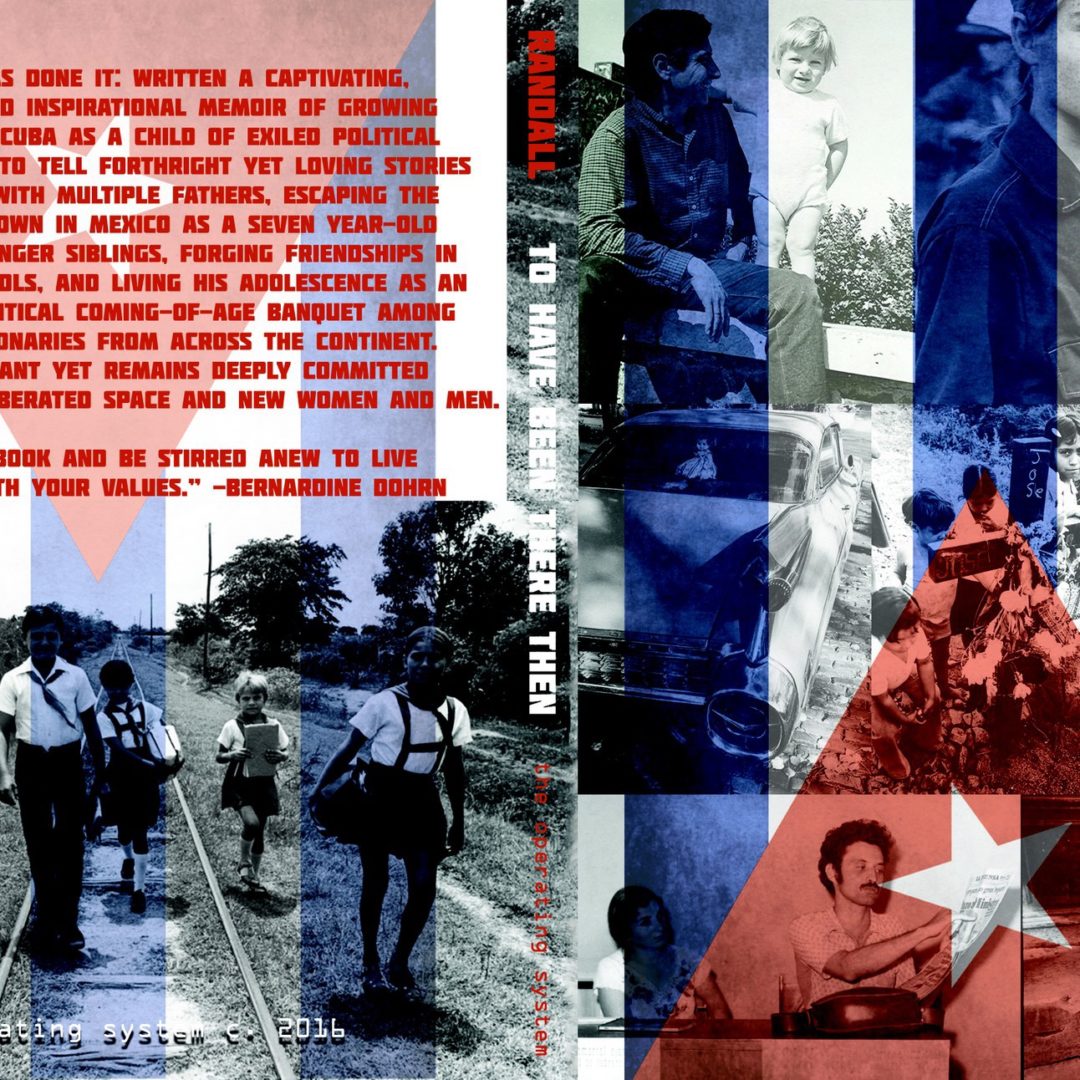
Margaret Randall, one of the poets featured in our Fall 2016 issue, has a brand new book out called “TO SAVE THE WORLD and TO HAVE BEEN THERE THEN” being released by The Operating System. Check out the link below to check the book out!
http://www.theoperatingsystem.org/to-have-been-there-then-and-how-to-be-here-now/
The Kerosene Singing
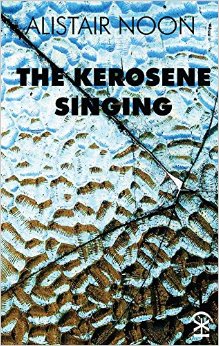
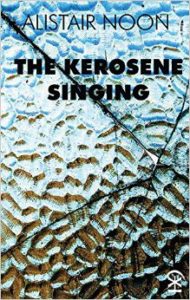 by Alistair Noon,
by Alistair Noon,
Nine Arches Press, Rugby, U.K., 2015,
64 pages, paper, £9.99,
ISBN: 978-0-9931201-6-9
Buy the Book
Alistair Noon is a native Brit who has lived mainly in Berlin for the past twenty years or so, and along the way mastered not just German but Chinese, Russian, and good bits of several other languages. His poetry, as his recent collection The Kerosene Singing reveals, is a product partly of a deft sense of logopoeia — or “dance of the intellect among words,” as Ezra Pound instructed us — and, moreover, a masterful skill with the musical properties of words, or melopoeia, and the dreamlike states music coaxes from reality.
Noon’s subject matter covers, in a British ex-pat idiom, the gist of the postmodern sensibilities of this era: the relationship of personal to sociopolitical life; the ironies of power, especially in foreign lands; the strangely meaningful emptiness of the everyday; and the general ridiculousness of practically everything.
These subjects are bound mainly into little narratives that tend to start out as some kind of a foreign excursion, journey to a friend’s apartment, or shuffle home. At the outset of “Riding Home with Michel Foucault,” the speaker is on a train platform peering at its surrealistic announcement board. Then:
I run for the doors
to take my temporary seat
and read the origin of laws.
The books beside me speak:
“Where are you now on the market?”
“Are you sure you’re on the right diet?”
This State is my life, it asks me
to ride and read by night . . . .
Here, and often in Noon’s world, the everyday is permeated in dreamlike ways by sociopolitical pressures. In “Ode on a Bottle of
Maotai,” the packaging itself becomes a wry, ironically nightmarish figure of a Chinese communist approach to the politics of marketing:
Rip off the red plastic, friend, unscrew
that top! Now pour. Downstream of the Dam
the engineers have raised their toast,
a hint of vomit in its scent and taste:
Oh hold your drink and don’t fall down.
Likewise, “Khakassian Masks” takes us on a dreamlike journey through Central Asian history, with all kinds of implications about the Russian present. “Dream,” he writes, “and the narratives arrive. / There, in the smoke, the souls rise.” No coincidence here, either, that one of Noon’s explicit guides in poetry and politics is Osip Mandelstam, whose poetry he has translated.
The tenor of all this is conveyed in exquisitely wrought sonic patterns. In the lines from “Riding Home with Michel Foucault,” the slant rhymes in “seat”/“speak” and “diet”/“(life)”/“night” form a sonic thread. These assonances also are not accidents.
The best example of Noon’s music from The Kerosene Singing might be “An Update on the Status of Frost,” in its entirety:
Windows make fine translators
in cold, white morning light.
Gingko leaves, barbed wire lines,
rivers when viewed from space.
About our future, I would say:
the management of forests,
new languages of frost,
the constant labour of status.
The slant rhymes “light”/“lines,” “forest”/“frost” are immediately chordant on the ear, and a subtler thread is the assonant long A carried across “translators”/“space”, “say”/“status” (in the British pronunciation). These patterns shape the melopoeia that, in Pound’s words, creates “the bridge between consciousness and the unthinking sentient or even unsentient universe.”
Despite these poems’ persistent ironic humor, it sometimes feels like history is the proverbial nightmare from which the poet is trying to awake. But he says the emphasis is in the opposite direction: “I am slowly trying to emulate Mandelstam’s futurism, in the widest sense,” he has said, in response to a question about history and poetry, “and redirect what I write that way out of the present, if possible.”
The Kerosene Singing is well worth looking into, as are his previous collection, Earth Records (Nine Arches Press, 2012), and his chapbooks, like Swamp Area and Across the Water (Longbarrow Press, 2012), Out of the Cave (Calder Wood Press, 2011) and Some Questions on the Cultural Revolution (Gratton Street Irregulars, 2010).
Story & Luck
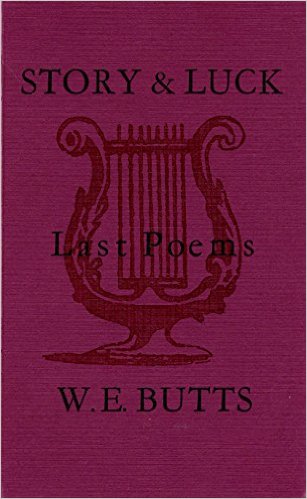
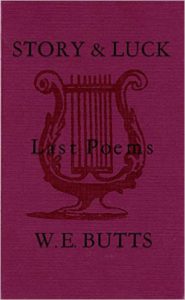 by W.E. Butts,
by W.E. Butts,
Adastra Press, 2015,
26 pages, paper, $17,
ISBN: 978-0-983-82387-2
Buy the Book
“W.E. Butts understands . . . what the great jazz man Charlie Mingus meant,” writes David Allan Evans, “when he said that ‘anybody can play weird, but what’s difficult is to be simple.’”
Fundamentally sound, a poet of immense depth and consideration, Butt’s work is primarily informed by two seemingly different eras. One influence is the post-WII period, with its well-earned nostalgia for home life and its attachment to honest living, dignity, and tradition, which makes for a poetry highly reflective and quietly infused with the language of his Catholic upbringing, ever reaching at earnestness, and given over to a lower-case truth-telling. A second influence is the 1960s, with its inherent tensions, upheavals, and mad rush into experiment and text-distrust, resulting in a heightened engagement with the world, more questioning, and even some strands of ambivalence and disillusionment — though all of it tempered by a Near-Eastern economy of gesture and preoccupation with the thought-ordinary image, this idea of writing-as-practice or inquiry, and an almost noir-ish nod to the past with a loosening up of his diction and lines.
Eventually, he would combine the two strains into a lyric-narrative hybrid that is remarkably thoughtful and wise, clear-eyed and urgent, and mightily concerned with humanity and its shaping, ongoing push towards the ideal. Regardless of what stage in his evolvement, Butt’s poetry is always unfailingly devoted, ever-measured and studied, to the rooting out of one’s voice, the perfecting of form, and the demands placed on us by being: the self-made-poet.
So it’s fitting that Story & Luck kicks off with this house brand of mysticism from another great jazz man, Fats Waller — “One never knows, do one?” — with its makeshift narrative, this strut of sorts, trained as best as it can on uncertainty, fate. While still interested in the same time-tested matters of his earlier work, Butts’ delivery feels even steadier, more determined, as he knowingly metes out this wisdom that, while modest, risks being dismissed by a younger audience seemingly addicted to the slickest of skill sets, power pointed-ness. Unlike the mass of writing today that opts for either stylistic overkill, cleverness (for not even cleverness’ sake . . . ) or these lists making much too much of one’s (you must forgive me . . . ) listlessness, he can always be counted on to meet not only memory, and all it asks of us, but his readership, more than halfway. Butts does so from the opening poem, “Primary”— a short and rarified briefing on politics, both local and not so, that draws more from the natural world than it does from the humanly legislated (“Weather reminds us / we too will settle”), its final gesture more bent on firming up and abiding-in, bringing to order, than it is about resignation, putting desire to rest — to the last, “James Wright’s Horses” which signs off with a familiar blessing still essential even when stared down by a battery of ailments (“There are certain words / that will transport us / to that other, flowering self ”), a benediction not only in mind of the words but the breaths that go into it.
Yes, grief figures in some way, in all of these poems, how the letting go of things, living, is both sired and resisted in the telling of it. But while the mood is meditative, tenderly voiced, its cast is democratic and masterfully commanded, whether it be the near-metaphysical trek of “The Cabin” with its half-imagined
gaining-on (“ . . . the higher you go / the cooler the air, the more / you feel elemental / and necessary”) or the tenaciously summoned reminiscences of loved ones in “Story”:
You look at the photograph hanging on your wall,
the one your friend took after a snow storm
of you and your wife, alone on the street, remote,
dark figures
that could be anyone, and above your heads
the Rosa’s sign in red script glowing against a
colorless sky.
Butts also gives numerous shout-outs to art — to music (“Some Small Blessing”), sculpture, photography (“In the Hand of a Graveyard Angel”), and, not surprisingly, literature. It is here where Story & Luck gains its hardest thought insights, its final
three poems registering one’s first and furthest initiation into that most noble of start-ups, where our words are forever working their way out from the dark:
First, “Lucky Deer,” a poem, which Walter’s wife S Stephanie explains in the Introductory Note, was “inspired by his grand-daughter Catherine, and his reading aloud a book (Brothers of the Senecas, which was actually written by Walter’s uncle Walter E. Butts Jr.) to her and her sister Chloe.” He reads the poem reverently, stirring to the line “Because history holds us to who we are,” before retiring, after several beddy-time misreads, with “The story changes, but it is always ours.”
And next-to-last, “Learning Williams,” in which a teacher’s animated lesson sells him on that most lyric of doctors, leading to this sermon-like moment: “I had come here an outcast, a kid in trouble but / one who loved / what words could do, how they silenced poverty / and shame, / and showed me things for what they truly were.”
And then, finally, “James Wright’s Horses” where that earlier seed-planting pays off with a wealth of what is most pressing.
And so, let us all say it now. With new meaning: Suddenly I realize / That if I stepped out of my body I would break / Into blossom.
— Mark DeCarteret


